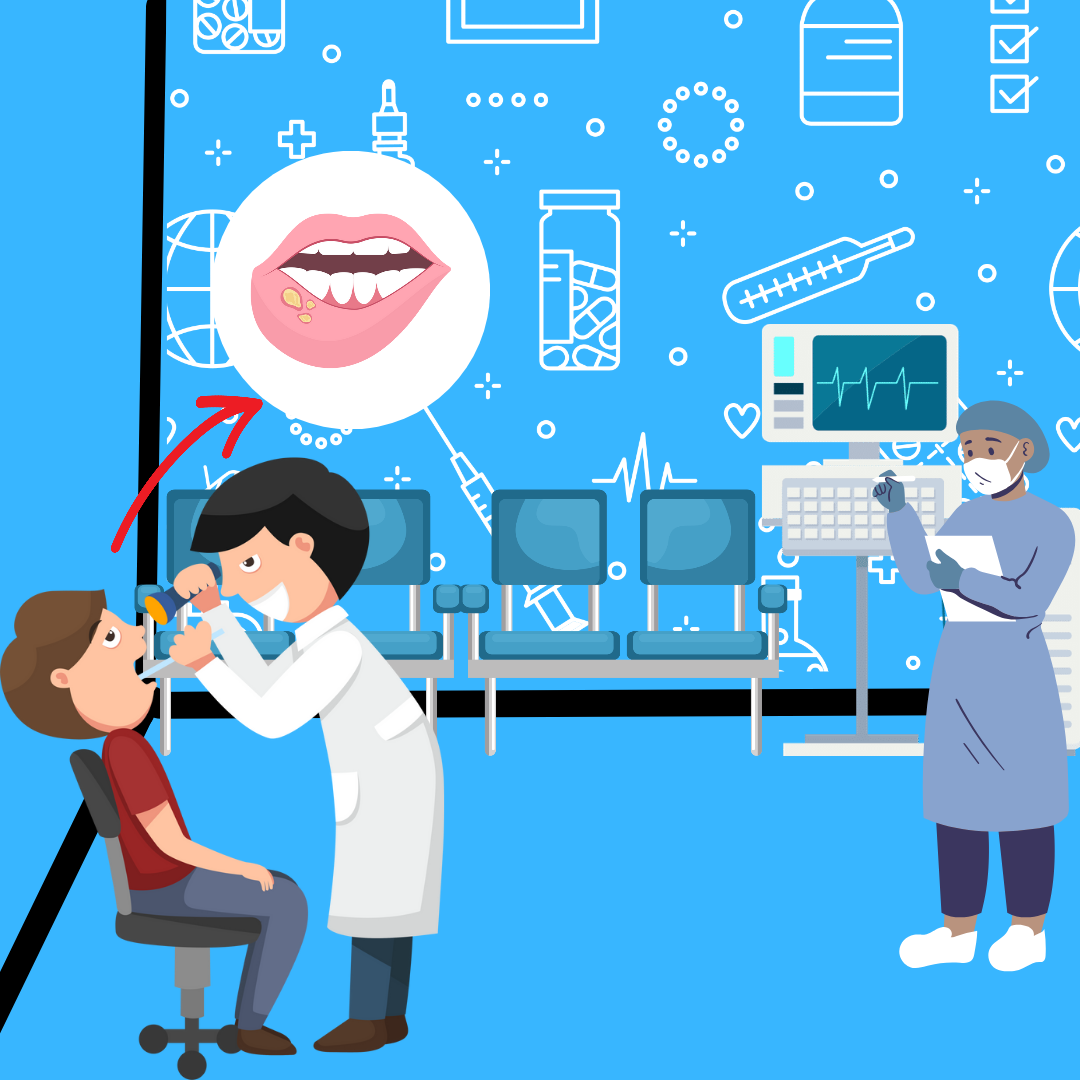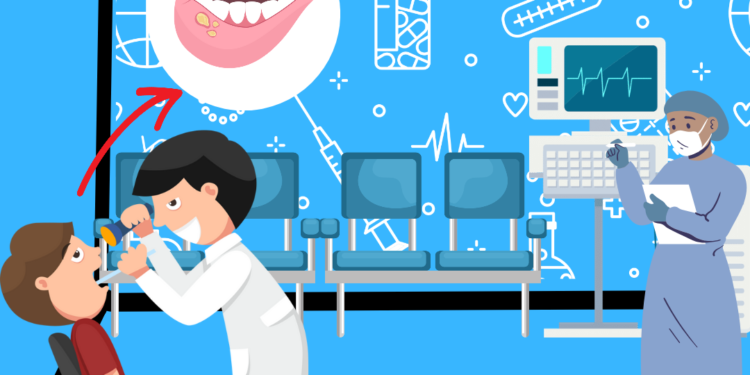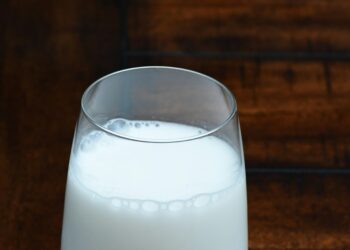Ever had those painful sores in your inner checks? Those are called canker sores. Canker sores are small and painful wounds found inside the mouth like the inner cheeks, lips, or tongue. These sores are pretty common and affect people of different ages.
One of the many things used to characterize canker sores is the oval shaped ulcer with a white or yellowish center, coupled with an inflamed or red looking outer part. The sores are pretty small but they don’t hurt like their size. It makes it hard for you to eat, drink, and even speak. But the part considered good about these types of sores is that they’re not contagious and they heal on their own. So let’s look at the types, symptoms and causes of canker sores.

Types of Canker Sores
There are different types of canker sores which are based on how big the sores are, how they look, and how severe they are. The first on the list is minor canker sore, which is the most common type of canker sore, affecting over 80% of people dealing with canker sore.
Minor canker sores are usually less than 1cm in diameter, having a round or oval shape with a white or yellowish center, and an inflamed border. Their healing time is typically around 1-2 weeks. The second type is the major canker sores, which are larger, deeper and less common with about 10%. These sores tend to last for weeks, and leave scars because of how deep they are.
Herpetiform canker sores are the least common type of canker sores. However, they aren’t related to herpes even though they have the word “herpe-“. Herpetiform canker sores are clusters of tiny sores which can come together to form a larger ulcerated area. Having one sore is already as painful as it is. Imagine having clusters of sores, that can be really discomforting. The bothersome thing about the sores is the fact that they’re recurrent.
Symptoms of Canker Sores
- Small painful sores inside your mouth
- Round or oval-shaped sores
- Burning sensation when the sores appear
- Difficulty eating, sleeping, drinking and speaking etc.
Causes of Canker Sores
Injury: This is the most common cause of canker sores. Injury can happen when you bite the inside of your cheeks, or while brushing your teeth too hard.
Food: There are some foods that are acidic in nature, for example, oranges, tomatoes, or other spicy foods. These types of foods can irritate the lining of your lips, which can trigger canker sores.
Dental appliances: Dental appliances such as braces, dentures, and devices that were poorly fitted for teeth alignment, can cause friction or small injuries inside the mouth, leading to sores.
Stress: Stress is known for causing change in the body’s immune system. Thus, if your stress levels are high, you’re more likely to develop canker sores.
Hormonal changes: During different biological stages like pregnancy, and menopause, the body’s hormones tend to change or fluctuate. This fluctuation can increase the likelihood of developing canker sores.
Nutritional deficiencies and medical conditions: If you lack certain vitamins and minerals in your body, such as vitamin B12, iron, or folic acid, it can contribute to the formation of canker sores.
Furthermore, conditions like celiac disease, Crohn’s disease, or a weakened immune system can make you more prone to canker sores.
Conclusion
Canker sores can be painful and disruptive. If you know what causes your canker sores, such as certain foods, stress, or mouth injuries, you can try to avoid or manage these triggers. For example, avoiding acidic foods or using a softer toothbrush can reduce the chances of getting sores.

















